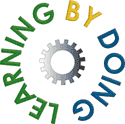TECHNICAL TRAINING SOLUTIONS |
 |
|||
| ELECTRICAL COURSES | INSTRUMENTATION COURSES | MECHANICAL COURSES | ||
INSTRUMENTATION COURSES
The Instrumentation course employs a large range of industrial current loop, temperature, pressure, level and flow sensors and associated equipment. The course teaches electricians with no previous instrumentation knowledge how to recognise, calibrate and maintain a range of equipment used in real industrial instrumentation systems and then the follow-up course on PID Controllers shows how these would be put into a control loop. These two courses combined together form the Instrumentation & Process Control course.
On the PLC courses, we use laptop computers running industrial software. These are connected to PLCs which are in turn connected to a medium-sized training rig which incorporates motors, solenoids, switches and conveyor belts. The intention of the PLC courses is that having worked with the range of manufacturers that we use, delegates will be able to work with any manufacturer of PLCs back in their workplace. A very important distinction is made between the courses on PLC Fault Finding and PLC Programming.
The Electrical Problem Solving course teaches electricians the best way to go about fault finding on modern integrated control panels.
The Soldering and Electronics courses are aimed at candidates interested in electronic devices. The Practical Electronics course teaches how the common components are used with an emphasis on understanding the circuitry by altering the designs. The Fault Finding course shows how to find faults on electronics boards. Both courses show how to read electronic circuit diagrams and how to use modern test gear. The Soldering course teaches how to solder a range of components properly with reference made to the key parts of the International soldering standards.
The Motor Drives courses employ custom-made rigs which use a range of manufacturers' drives. Candidates get the chance to practice setting parameters and monitoring the effects of these changes as the rigs are connected to real industrial motors.
|
|
|
|
|
|
|
|
|
|
|
|
